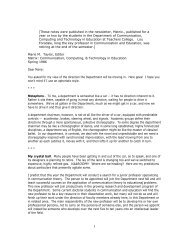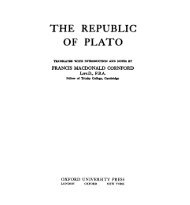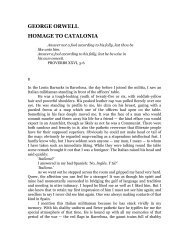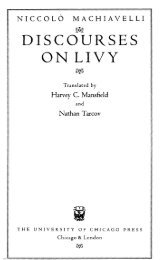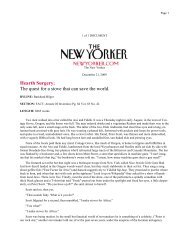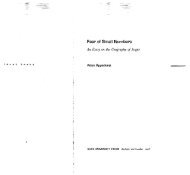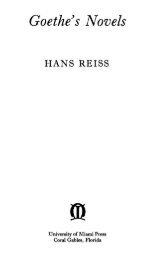IDEOLOGY UTOPIA - Studyplace
IDEOLOGY UTOPIA - Studyplace
IDEOLOGY UTOPIA - Studyplace
Create successful ePaper yourself
Turn your PDF publications into a flip-book with our unique Google optimized e-Paper software.
Ideology and Utopia 67<br />
a process of continual.hi§!QIiciU traDsfQtmition and.teWls<br />
to ll..c.()ns.taD1.Ie1tora.tlQ"" .Q!,J.t:L~l!.b!iHULo.I},.§W!JlJgher<br />
levels. During the Enlightenment the subject, as carrier of<br />
tneunity of consciousness, was viewed as a wholly abstract,<br />
super-temporal, and super-social entity: .. consciousness in<br />
itself." During this period the VolksM.4b II folk spirit,"<br />
comes to reEresent t~.!lj.~~orical~ differ~~,~~.~ed·.rlements of<br />
c(i!l~gQY§n~.s,-Wlifcn are integrated by Hegel into the .. WQrl~<br />
spirit." It is evident that the increasing concreteness of this<br />
type of philosophy results from the more immediate concern<br />
with the ideas arising from social interaction and the incorporation<br />
of historical-political currents of thought into the<br />
domain of philosophy. Thenceforth, hO~~~!:L.~e ,~~~ences<br />
o~~Y..~!:Y~.~}'J!£~.~ren l()ng~r ac~epted at face value,<br />
but are thou~ht. through in all their implications and are<br />
trace.-(·b~~~"t§Jlidr<br />
presuPPQsitions~ It should be noted,<br />
however, that the historically changing nature of mind was<br />
discovered not so much by philosophy as by the penetration<br />
of political insight into the everyday life of the time.<br />
The reaction following upon the unhistorical. thought. of !<br />
~~peri9d of the ~):ep.ch ..R.~:YQlution revitalized and'-gave {<br />
new impetus to the historical perspective. In the last analy- S<br />
sis, the transition from the general, abstract, world-unifying<br />
subject (" consciousness in itself ") to the more concrete<br />
subject (the nationally differentiated .. folk spirit ") was not<br />
so much a phlIosophical achievement as it was the expression<br />
of a transfonnation in the manner of reacting to the world<br />
in all realms of experience. This change may be traced toi<br />
the revolution in popular sentiment during and after the<br />
Napoleonic Wars when t!te feeli~ of ~~ioE~..!~~.J~.£~!!·<br />
a~~~ The fact that more remote antecedents may be<br />
found for both the historical perspective and the ~olksgeist<br />
does not detract from the validity of this observation.9<br />
• For future reference, we state here that the sociology of<br />
knowledge, unlike the orthodox history of ideas, does not aim at<br />
tracing ideas back to all their remote historical prototypes. For<br />
if one is bent on tracing similar motifs in thought to their ultimate<br />
origins, it is always possible to find" precursors" for every<br />
idea. There is nothing which has been said, which has not been<br />
said belore (Nullum est iam dictum, quod non sit dictum prius).<br />
The Droper theme of our study is to observe how and io whal



